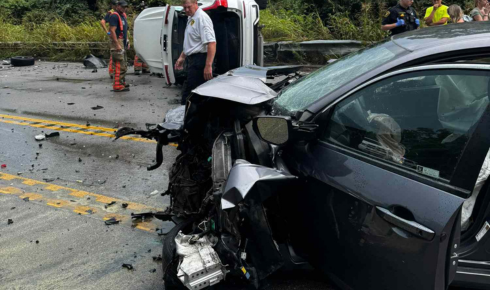Car accidents happen every day in Indianapolis, but not all result in the same level of injury. While many victims walk away with cuts, bruises, or broken bones, some suffer far more severe and life-altering harm. One of the most devastating outcomes of a serious car crash is a traumatic brain injury (TBI). These injuries affect not only the victim but also their families, often requiring lifelong treatment, rehabilitation, and financial resources.
If you or a loved one suffered a TBI after a collision, working with an experienced Traumatic Brain Injury lawyer in Indianapolis can make a tremendous difference in your recovery. This article explores what TBIs are, how they occur in car accidents, their long-term effects, and why seeking legal guidance is essential.
What is a Traumatic Brain Injury?
A traumatic brain injury occurs when a sudden impact or violent jolt causes damage to the brain. Depending on the severity, TBIs can range from mild concussions to severe injuries that result in permanent disability or even death. Unlike many other injuries, the effects of brain trauma can be invisible, making them harder to diagnose and sometimes more dangerous if left untreated.
Types of TBIs
• Concussions – Often considered mild but can still cause lasting effects if untreated or repeated.
• Contusions – Bruising of the brain tissue caused by direct impact.
• Diffuse Axonal Injury – Damage to the brain’s nerve fibers due to strong rotation or shaking forces.
• Penetrating Injuries – When an object breaks through the skull and damages brain tissue.
• Coup-Contrecoup Injury – When the brain hits both sides of the skull during impact, causing multiple areas of damage.
How Car Accidents Cause TBIs
Car accidents are one of the leading causes of traumatic brain injuries nationwide, and Indianapolis is no exception. TBIs often occur in collisions because of the rapid acceleration and deceleration forces involved. Victims may strike their head against the steering wheel, dashboard, side windows, or even suffer injury from whiplash-like motion without direct impact.
Common Accident Scenarios That Lead to TBIs
• Head-on collisions – The sudden stop can cause the brain to hit the inside of the skull with great force.
• Rear-end crashes – Whiplash can create violent shaking that injures brain tissue.
• Rollover accidents – Victims may hit their heads multiple times as the vehicle rolls.
• Side-impact crashes – The direct blow to the side of the vehicle often leaves little protection for the head.
• Pedestrian and cyclist crashes – Without the protection of a vehicle, pedestrians and cyclists are highly vulnerable to catastrophic brain injuries.
A serious car crash may also cause secondary complications such as internal bleeding, swelling, or oxygen deprivation, which can worsen brain damage.
Symptoms of a Traumatic Brain Injury
Recognizing the symptoms of a TBI is critical because early treatment can reduce long-term damage. Some symptoms appear immediately after the accident, while others develop gradually over time.
Physical Symptoms
• Headaches or migraines
• Nausea or vomiting
• Seizures
• Loss of consciousness
• Dizziness or balance problems
• Blurred vision or sensitivity to light
Cognitive and Emotional Symptoms
• Memory loss or confusion
• Difficulty concentrating
• Irritability or mood swings
• Anxiety or depression
• Trouble sleeping or excessive fatigue
Because brain injuries can present differently depending on the person, medical evaluation is essential after any serious car crash, even if no symptoms appear at first.
The Long-Term Impact of TBIs
The effects of a traumatic brain injury often extend far beyond the immediate aftermath of the accident. Victims may face permanent physical and cognitive impairments that change their daily lives forever.
Physical Challenges
• Partial or total paralysis
• Chronic headaches and fatigue
• Seizure disorders
• Impaired coordination and motor skills
Cognitive Challenges
• Difficulty with memory and concentration
• Impaired judgment and reasoning
• Challenges with speech and communication
Emotional and Social Challenges
• Depression and anxiety
• Changes in personality or temperament
• Strained relationships with family and friends
The long-term impact of a TBI frequently requires ongoing medical treatment, rehabilitation, and in some cases, full-time caregiving. Families may also need to adjust their homes or vehicles to accommodate mobility devices.
Financial Burden of Traumatic Brain Injuries
The costs associated with TBIs can be staggering. According to studies, the lifetime cost of care for a severe brain injury can reach millions of dollars. Expenses include:
• Emergency medical care and hospitalization
• Surgeries and ongoing medical treatment
• Physical and occupational therapy
• Cognitive rehabilitation programs
• Medication and assistive technology
• Lost wages and reduced earning capacity
• In-home or long-term nursing care
For families already dealing with the emotional toll of a catastrophic injury, these financial challenges can feel overwhelming.
The Role of a Traumatic Brain Injury Lawyer
A knowledgeable Traumatic Brain Injury lawyer in Indianapolis helps victims and their families pursue compensation that reflects the full scope of damages. Insurance companies often try to minimize payouts, but a skilled lawyer can advocate for fair compensation by:
• Investigating the cause of the accident and identifying all liable parties
• Working with medical experts to document the extent of the injury
• Calculating current and future financial losses
• Negotiating with insurance companies for fair settlements
• Taking the case to trial if necessary
Having a catastrophic injury lawyer by your side ensures that victims do not face insurers and corporations alone.
Compensation in TBI Cases
Victims of traumatic brain injuries may be entitled to both economic and non-economic damages, including:
• Medical expenses, past and future
• Lost income and diminished earning potential
• Rehabilitation and therapy costs
• Pain and suffering
• Emotional distress
• Loss of companionship or consortium
Because TBIs can have lifelong consequences, compensation should account for the decades of future care and financial support required.
Why Prompt Legal Action Matters
Indiana law imposes a statute of limitations on personal injury claims, generally giving victims two years from the date of the accident to file a lawsuit. Waiting too long can jeopardize your ability to recover damages. Prompt action also allows your lawyer to preserve evidence, interview witnesses, and build a strong case.
Preventing Traumatic Brain Injuries
While not all accidents are preventable, specific steps can reduce the risk of TBIs:
• Always wear seatbelts and ensure children are in proper car seats
• Avoid distracted or impaired driving
• Wear helmets when riding motorcycles, bicycles, or scooters
• Drive cautiously in areas with heavy pedestrian or cyclist traffic
• Follow traffic signals and speed limits
Taking safety precautions cannot eliminate all risks, but it can significantly reduce the severity of injuries in the event of a crash.
Frequently Asked Questions
How do I know if I need a lawyer after a TBI?
If you suffered a brain injury in a car accident caused by another driver’s negligence, you should consult a Traumatic Brain Injury lawyer. They can help secure compensation for medical expenses, lost income, and long-term care.
Can mild TBIs like concussions still be serious?
Yes. Even so-called “mild” TBIs can have lasting effects if untreated, especially if a person suffers repeated concussions.
How long does it take to recover from a TBI?
Recovery varies widely. Some victims recover within weeks, while others experience lifelong impairments. The severity of the injury largely determines the recovery timeline.
What if the insurance company offers a settlement right away?
Early settlement offers are often far less than what victims need to cover long-term care. Always consult an attorney before accepting any offer.
Are TBIs considered catastrophic injuries?
Yes. Traumatic brain injuries are often classified as catastrophic because they frequently result in permanent disabilities and lifelong financial and emotional challenges.
Final Thoughts
A traumatic brain injury is one of the most devastating consequences of a car accident. It impacts every aspect of a person’s life, from their ability to work and think clearly to their relationships with loved ones. If you or a family member suffered a TBI after a serious car crash in Indianapolis, don’t face the aftermath alone. With the help of a catastrophic injury lawyer, you can pursue justice and the financial support needed to manage medical care, rehabilitation, and long-term recovery. A dedicated Traumatic Brain Injury lawyer in Indianapolis can fight on your behalf, ensuring your future is protected.





